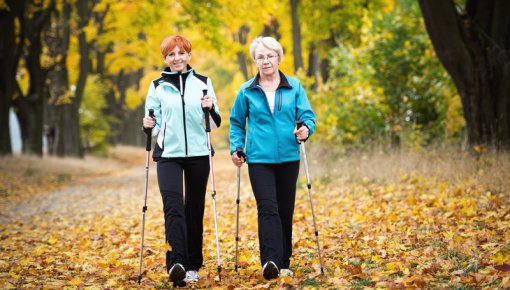Bernier-Jean A, Beruni NA, Bondonno NP et al. Exercise training for adults undergoing maintenance dialysis. Cochrane Database Syst Rev 2022; (1): CD014653.
Cheema BS, Chan D, Fahey P, Atlantis E. Effect of progressive resistance training on measures of skeletal muscle hypertrophy, muscular strength and health-related quality of life in patients with chronic kidney disease: a systematic review and meta-analysis. Sports Med 2014; 44(8): 1125-1138.
Clarke AL, Young HM, Hull KL et al. Motivations and barriers to exercise in chronic kidney disease: a qualitative study. Nephrol Dial Transplant 2015; 30(11): 1885-1892.
Clarkson MJ, Bennett PN, Fraser SF, Warmington SA. Exercise interventions for improving objective physical function in patients with end-stage kidney disease on dialysis: a systematic review and meta-analysis. American Journal of Physiology - Renal Physiology 2019; 316(5): F856-F872.
Fouque D, Vennegoor M, ter Wee P et al. EBPG guideline on nutrition. Nephrol Dial Transplant 2007; 22 Suppl 2: ii45-87.
Geberth S, Nowack R. Praxis der Dialyse. Berlin: Springer; 2014.
Hahn D, Hodson EM, Fouque D. Low protein diets for non-diabetic adults with chronic kidney disease. Cochrane Database Syst Rev 2018; (10): CD001892.
Hargrove N, El Tobgy N, Zhou O et al. Effect of Aerobic Exercise on Dialysis-Related Symptoms in Individuals Undergoing Maintenance Hemodialysis: A Systematic Review and Meta-Analysis of Clinical Trials. Clin J Am Soc Nephrol 2021; 16(4): 560-574.
Heiwe S, Jacobson SH. Exercise training for adults with chronic kidney disease. Cochrane Database Syst Rev 2011; (10): CD003236.
Heiwe S, Jacobson SH. Exercise training in adults with CKD: a systematic review and meta-analysis. Am J Kidney Dis 2014; 64(3): 383-393.
Jun M, Venkataraman V, Razavian M et al. Antioxidants for chronic kidney disease. Cochrane Database Syst Rev 2012 (Update 2023); (10): CD008176.
Kidney Disease: Improving Global Outcomes (KDIGO). KDIGO 2021 Clinical Practice Guideline for the Management of Blood Pressure in Chronic Kidney Disease. 2021.
Kidney Disease: Improving Global Outcomes (KDIGO). KDIGO 2024 Clinical Practice Guideline for the Evaluation and Management of Chronic Kidney Disease (CKD). 2024.
Mah JY, Choy SW, Roberts MA et al. Oral protein-based supplements versus placebo or no treatment for people with chronic kidney disease requiring dialysis. Cochrane Database Syst Rev 2020; (5): CD012616.
McMahon EJ, Campbell KL, Bauer JD, Mudge DW. Altered dietary salt intake for people with chronic kidney disease. Cochrane Database Syst Rev 2015; (2): CD010070.
McMahon EJ, Campbell KL, Bauer JD et al. Altered dietary salt intake for people with chronic kidney disease. Cochrane Database Syst Rev 2021; (6): CD010070.
Meuleman Y, Ten Brinke L, Kwakernaak AJ et al. Perceived Barriers and Support Strategies for Reducing Sodium Intake in Patients with Chronic Kidney Disease: a Qualitative Study. Int J Behav Med 2015; 22(4): 530-539.
Morris A, Krishnan N, Kimani PK, Lycett D. CORRECTED ARTICLE: Effect of Dietary Potassium Restriction on Serum Potassium, Disease Progression, and Mortality in Chronic Kidney Disease: A Systematic Review and Meta-Analysis. J Ren Nutr 2022; 32(1): e1-e10.
Nakamura K, Sasaki T, Yamamoto S et al. Effects of exercise on kidney and physical function in patients with non-dialysis chronic kidney disease: a systematic review and meta-analysis. Sci Rep 2020; 10(1): 18195.
National Institute for Health and Care Excellence (NICE). Chronic kidney disease: assessment and management (NICE Clinical guidelines; No. 203). 2021.
Palmer SC, Hanson CS, Craig JC et al. Dietary and fluid restrictions in CKD: a thematic synthesis of patient views from qualitative studies. Am J Kidney Dis 2015; 65(4): 559-573.
Palmer SC, Maggo JK, Campbell KL et al. Dietary interventions for adults with chronic kidney disease. Cochrane Database Syst Rev 2017; (4): CD011998.
Rughooputh MS, Zeng R, Yao Y. Protein Diet Restriction Slows Chronic Kidney Disease Progression in Non-Diabetic and in Type 1 Diabetic Patients, but Not in Type 2 Diabetic Patients: A Meta-Analysis of Randomized Controlled Trials Using Glomerular Filtration Rate as a Surrogate. PLoS One 2015; 10(12): e0145505.
Yan B, Su X, Xu B et al. Effect of diet protein restriction on progression of chronic kidney disease: A systematic review and meta-analysis. PLoS One 2018; 13(11): e0206134.
IQWiG health information is written with the aim of helping people understand the advantages and disadvantages of the main treatment options and health care services.
Because IQWiG is a German institute, some of the information provided here is specific to the German health care system. The suitability of any of the described options in an individual case can be determined by talking to a doctor. informedhealth.org can provide support for talks with doctors and other medical professionals, but cannot replace them. We do not offer individual consultations.
Our information is based on the results of good-quality studies. It is written by a team of health care professionals, scientists and editors, and reviewed by external experts. You can find a detailed description of how our health information is produced and updated in our methods.

